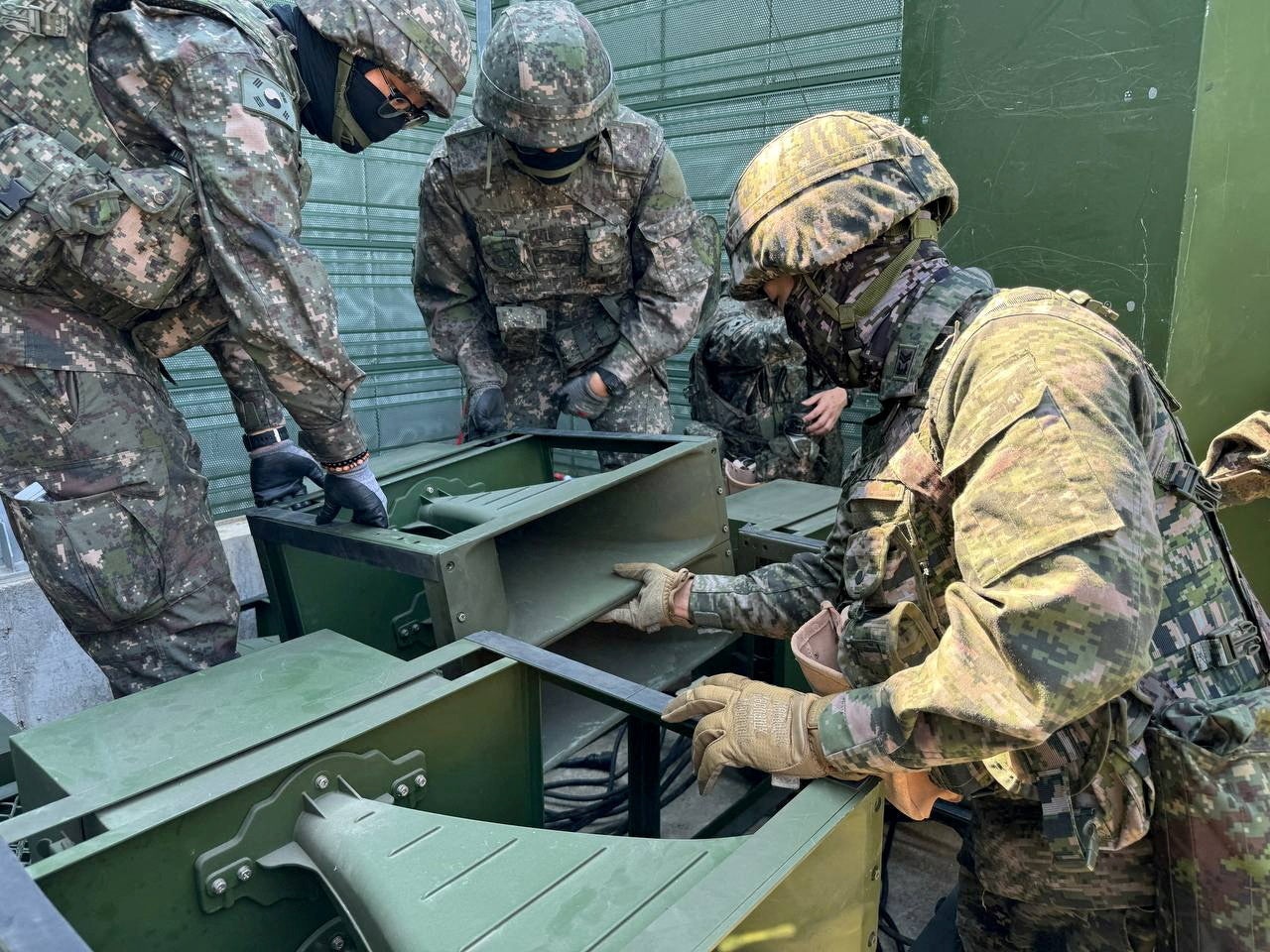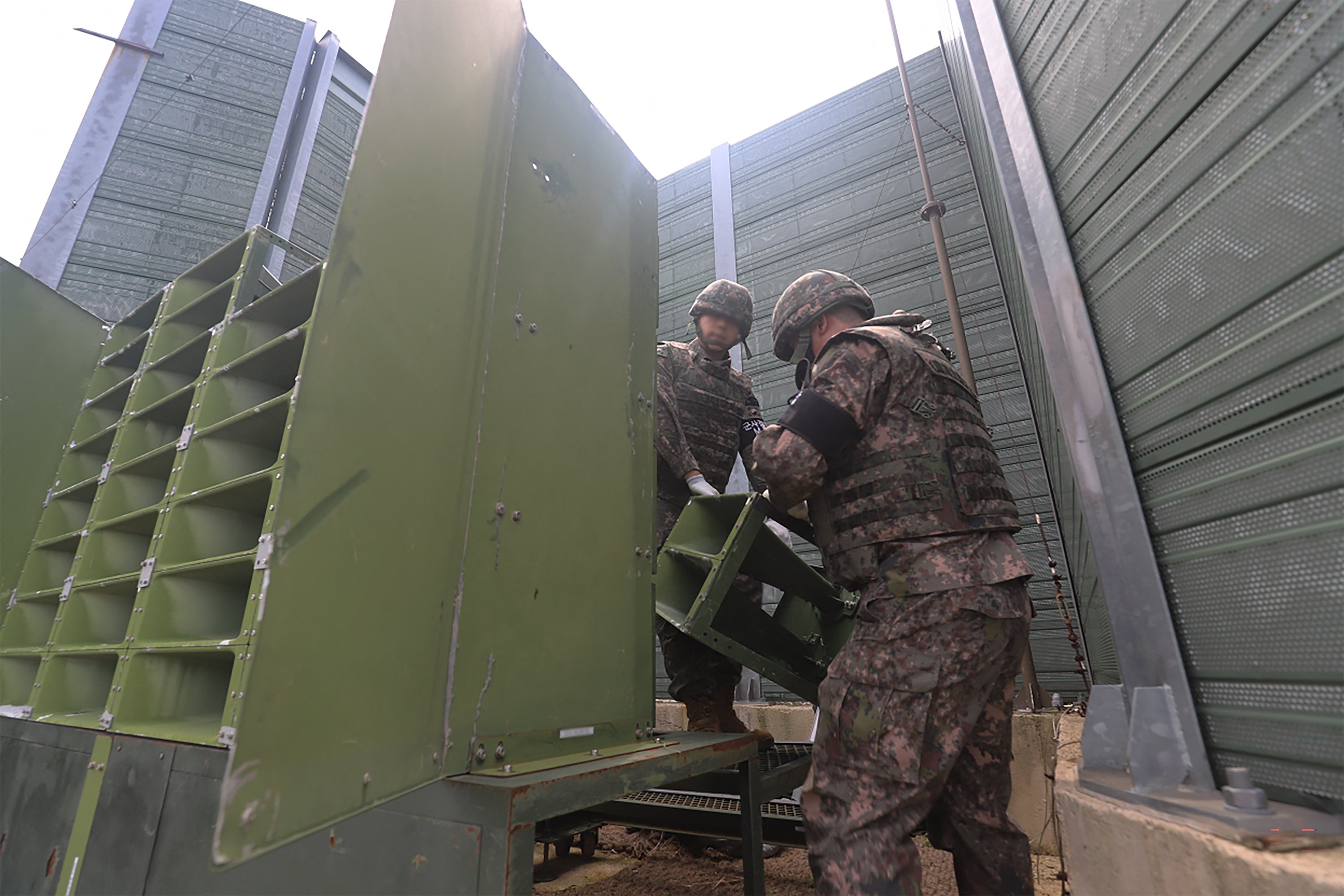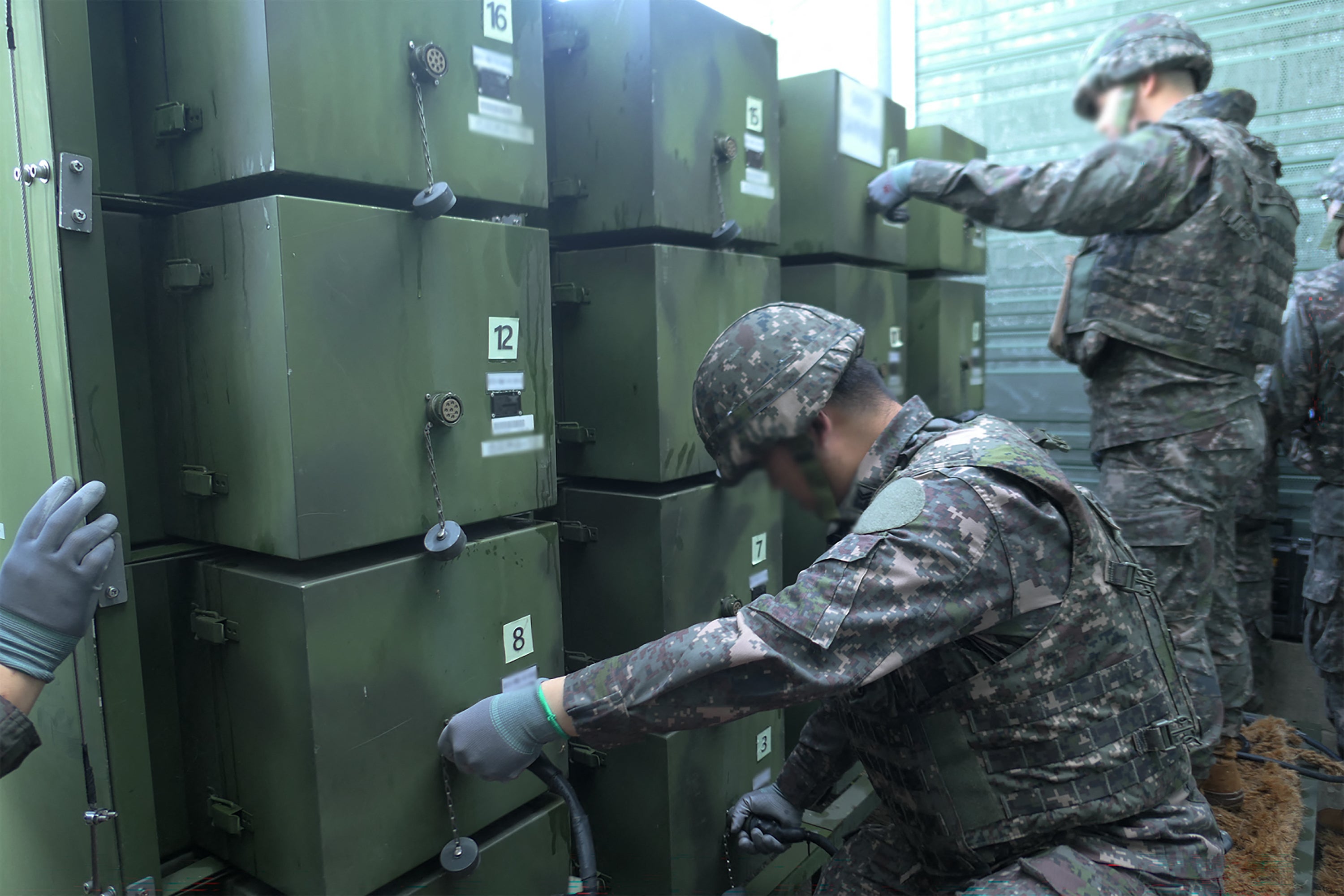South Korean authorities have begun dismantling loudspeakers along its border with North Korea in an attempt to reduce tensions.
The speakers had previously been used to blast anti-North Korean propaganda and K-pop music across the border, but the South’s new liberal government halted the broadcasts in June.
The move to stop the broadcasts was seen as a conciliatory gesture as South Korea looks to rebuild trust and revive dialogue with Pyongyang, which has largely cut off cooperation with the South in recent years.

But North Korea recently rebuffed the overtures, saying that it had no interest in talking to South Korea.
South Korea’s Defence Ministry said the physical removal of the loudspeakers from the border was another “practical measure” aimed at easing tensions between the war-divided Koreas and that it does not affect the South’s military readiness.
Lee Kyung-ho, a spokesperson for the ministry, didn’t share specific details on how the removed loudspeakers will be stored or whether they could be quickly redeployed to the border if tensions flare again between the two.

Soldiers could be seen unplugging loudspeakers, mounted together like a wall, and taking them down, photographs provided by the defence ministry showed.
There were no discussions between the two militaries ahead of the South’s decision to remove the speakers, Lee said during a briefing.
North Korea, which is extremely sensitive to any outside criticism of its authoritarian leaderskhip and its third-generation ruler, Kim Jong Un, did not comment on the South Korean step.
The South’s previous conservative government resumed the daily loudspeaker broadcasts in June last year following a years-long pause in retaliation for North Korea flying trash-laden balloons toward the South.

The speakers blasted propaganda messages and K-pop songs, a playlist designed to strike a nerve in Pyongyang. Officials claimed at the time that the sound travelled up to 15 miles at night.
Kim’s government has been intensifying a campaign to eliminate the influence of South Korean pop culture and language among the population in a bid to strengthen his family’s dynastic rule.
The psychological warfare campaigns further heightened tensions already inflamed by North Korea’s advancing nuclear programme and South Korean efforts to expand joint military exercises with the United States and their trilateral security cooperation with Japan.
South Korean president Lee Jae Myung, a liberal who took office in June after winning an early election to replace ousted conservative Yoon Suk Yeol, has vowed to improve relations with Pyongyang.
But Kim Yo Jong, the influential sister of the North Korean leader, rebuffed overtures by Lee’s government last week, saying that Seoul’s “blind trust” in the country’s alliance with the US and hostility toward North Korea make it no different from its conservative predecessor.







